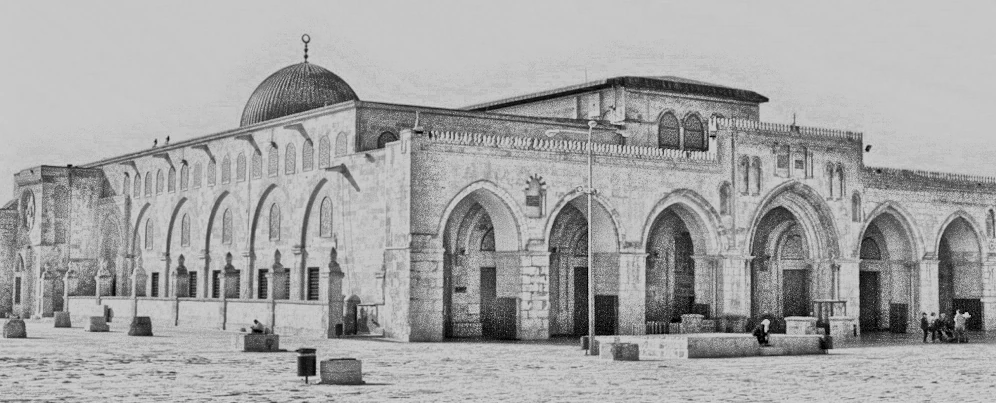Al Aqsa Mosque, with its meaning “the farthest” or “the supreme” in Arabic, holds a prominent place in the heart of the old city of Jerusalem. Muslims from all sects revere this mosque, considering it the third holiest site after Mecca and Medina.
This article explores the historical and spiritual significance of Al Aqsa Mosque, its association with Prophet Muhammad ﷺ‘s miraculous journey, and its role as a unifying force for Muslims worldwide.

Why is Masjid Al Aqsa Important in Islam
Masjid al-Aqsa holds immense importance, and there are several compelling reasons that contribute to its significance. From its connection to the land of the Prophets to the deep emotional attachment to the Islamic world, here I have pointed out the top five reasons to understand it.
1. The Miraculous Journey and Prophetic Connections
Al Aqsa Mosque is mentioned multiple times in the Quran, particularly in verse 17:1 of the chapter Al Isra. This verse recounts Prophet Muhammad ﷺ‘s night journey from Medina to Masjid Al Aqsa in Jerusalem, where he performed prayers before ascending to meet the Divine.
Islamic sources emphasize that this journey transcended the bounds of time and space, offering solace to the Prophet (peace be upon him) during a time of intense hardship and opposition from his tribe and family.
2. The Holy Land and Blessed Territory
Islamic scriptures refer to Al Aqsa Mosque as the center of Bayt al Maqdis, the Holy Land, and a land of divine blessings and peace. The Quran highlights the blessed nature of Al Aqsa and its surroundings, signifying a territory bestowed with physical and spiritual bounties by God, benefiting all of creation.
The Holy Land’s significance is further emphasized by the presence and connections of numerous prophets who either lived there or held a special bond with the region.
3. The First Qibla and Prophet Muhammad ﷺ‘s Teachings
Al Aqsa Mosque served as the first Qibla, the direction of prayer, for Muslims before the Kaaba in Mecca. Prophet Muhammad ﷺ and his companions initially faced Al Aqsa during prayers until a divine commandment changed the direction to the Kaaba.
The Prophet (peace be upon him) encouraged Muslims to visit Al Aqsa, declaring that one prayer there equals the reward of five hundred prayers elsewhere. His teachings solidify the importance of Al Aqsa as a sacred destination for Muslims seeking spiritual enrichment.
4. Resilience and Unity
Throughout history, Al Aqsa Mosque has withstood challenges, symbolizing the resilience and unwavering faith of the Muslim community. Despite conflicts and adversity, the mosque stands as a testament to the enduring spirit of Muslims. Its preservation serves as a powerful reminder of the steadfastness and determination inherent in Islam.
5. A Spiritual Center and Global Unity
Al Aqsa Mosque acts as a spiritual center, drawing Muslims from diverse backgrounds and transcending cultural, linguistic, and national boundaries. Pilgrims and visitors from around the world gather at this holy site, fostering a sense of unity and interconnectedness among Muslims.
The collective devotion to Al Aqsa Mosque represents the shared strength and solidarity of the global Muslim community.
The Al Aqsa Mosque holds immense significance for Muslims worldwide. Its association with Prophet Muhammad ﷺ‘s miraculous journey, its role as the first Qibla, and its embodiment of resilience and unity make it a cherished site of worship and devotion.
Al Aqsa Mosque symbolizes the collective strength and unwavering faith of Muslims, serving as a constant reminder of their interconnectedness and shared spiritual heritage.
